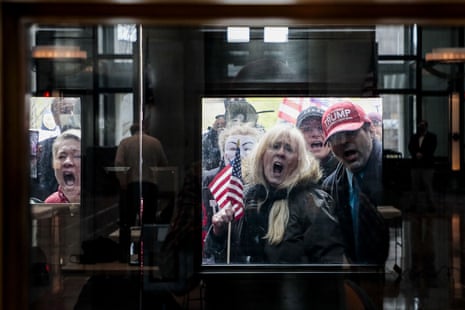
A recent report by the Brennan Center for Justice reveals that a substantial number of state legislators and elected local officials in the United States are avoiding controversial policy topics like abortion and gun control due to the fear of receiving threatening abuse. The study, released on Thursday, highlights a pervasive trend of extremist intimidation that extends beyond the national stage, impacting local and state politics alike. The aftermath of events like the Capitol attack on January 6, 2021, has led elected officials to limit their interactions with constituents and narrow down the contentious issues they are willing to address.
The Brennan Center's survey encompassed 350 state legislators and over 1,350 local officeholders across towns, municipalities, and county governments. Shockingly, more than 40% of state lawmakers reported experiencing threats or attacks in the past three years, while nearly one in five local officials faced similar abuse over an 18-month period. The threats ranged from intimidation with weapons to explicit death threats, with some even providing detailed plans of potential attacks.
The intimidation tactics appear closely tied to the policy positions taken by elected officials, particularly on divisive issues like gun control and abortion. This, in turn, is seen as eroding the democratic process at various levels of government, warns the Brennan Center. The report reveals that 39% of locally elected officials and over 20% of state lawmakers admitted they were less willing to advocate for controversial policies due to fear of abuse. When extrapolated, this suggests a significant impact on tens of thousands of officials in state and local governments.
Amid a surge in mass shootings in the US, lawmakers are particularly hesitant to address gun regulations. Some politicians, like Democratic representative Kelly Cassidy from Illinois, cited personal safety concerns as a reason for not leading bills aimed at implementing safety controls on firearms.
The chilling effect on public discourse extends beyond policy decisions, with many officials now avoiding public events, social media engagement, off-duty public spaces, and media appearances. This pattern mirrors a national trend, where politicians are increasingly reluctant to tackle controversial subjects.
The safety of elected individuals has become a paramount concern, prompting US Attorney General Merrick Garland to discuss enhanced protection for public servants, including law enforcement personnel, members of Congress, judges, and election workers. Garland expressed deep concern over the spike in threats, emphasizing the potential harm to the fabric of American democracy.
The survey also highlights a disproportionate impact on certain demographic groups, particularly women and women of color, who endure severe abuse, often of a sexual nature, with threats extending to their families. Some elected officials, like Kristine Reeves from Washington state, have had to limit public contact and adjust campaign strategies to ensure safety.
As the 2024 presidential election approaches, the escalating language and imagery used by political figures raise concerns about the future, with potential consequences for public discourse and democratic engagement.
